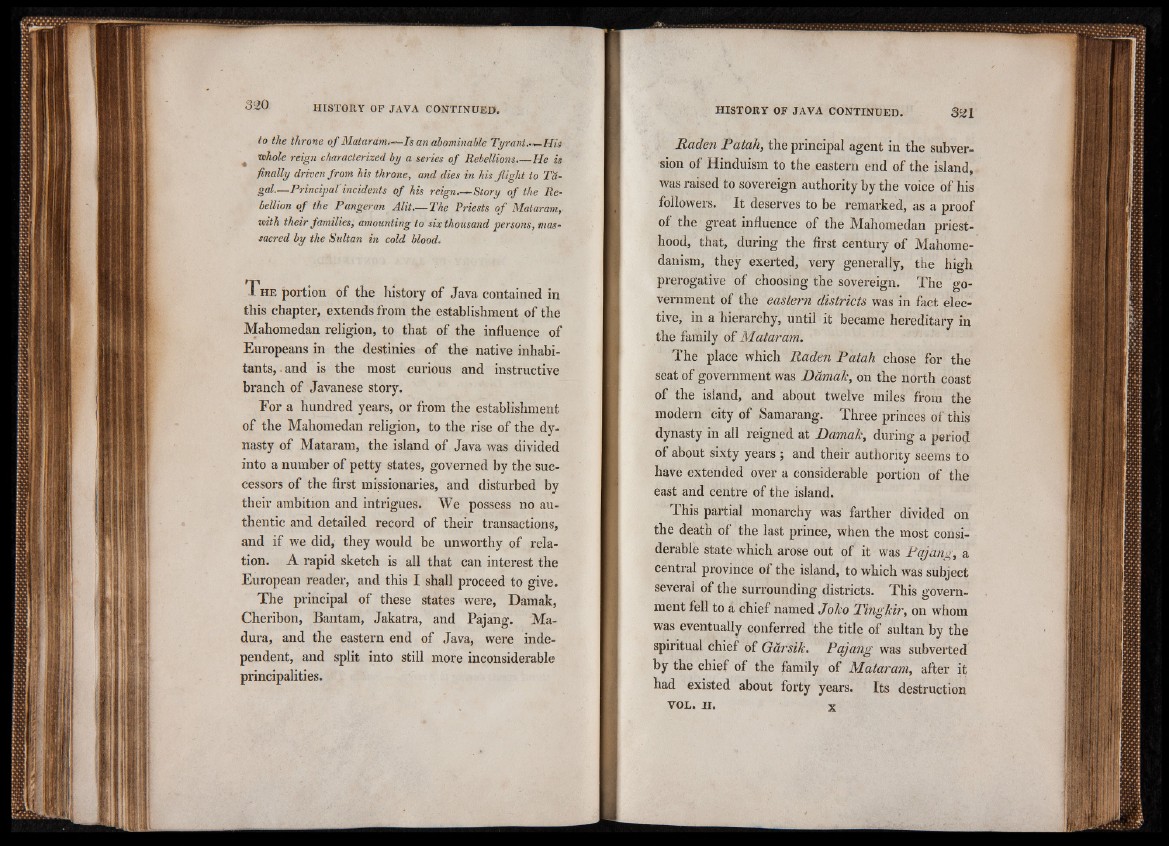
to the throne of Mataram.~Is an abominable Tyrant..—His
whole reign characterized by a series of Rebellions He is
finally driven from his throne, and dies in his flight to Ta-
gal— Principal'incidents of his reign.—Story of the Rebellion
of the Panger an Alit— The Priests of Mataram,
with their families, amounting to six thousand persons, massacred
by the Sultan in cold blood.
T he portion of the history of Java contained in
this chapter, extends from the establishment of the
Mahomedan religion, to that of the influence of
Europeans in the destinies of the native inhabitants,
and is the most curious and instructive
branch of Javanese story.
For a hundred years, or from the establishment
of the Mahomedan religion, to the rise of the dynasty
of Mataram, the island of Java was divided
into a number of petty states, governed by the successors
of the first missionaries, and disturbed by
their ambition and intrigues. We possess no authentic
and detailed record of their transactions,
and if we did, they would be unworthy of relation.
A rapid sketch is all that can interest the
European reader, and this I shall proceed to give.
The principal of these states were, Damak,
Cheribon, Bantam, Jakatra, and Pajang. Madura,
and the eastern end of Java, were independent,
and split into still more inconsiderable
principalities.
Raden Patah, the principal agent in the subversion
of Hinduism to the eastern end of the island,
was raised to sovereign authority by the voice of his
followers. It deserves to be remarked, as a proof
of the great influence of the Mahomedan priesthood,
that, during the first century of Mahome-
danism, they exerted, very generally, the high
prerogative of choosing the sovereign. The government
of the eastern districts was in fact elective,
in a hierarchy, until it became hereditary in
the family of Mataram.
The place which Raden Patah chose for the
seat of government was Damak, on the north coast
of the island, and about twelve miles from the
modern city of Samarang. Three princes of this
dynasty in all reigned at Damak, during a period
of about sixty years ; and their authority seems to
have extended over a considerable portion of the
east and centre of the island.
This partial monarchy was farther divided on
the death of the last prince, when the most considerable
state which arose out of it was Pajang, a
central province of the island, to which was subject
several of the surrounding districts. This government
fell to a chief named Joko Tingkir, on whom
was eventually conferred the title of sultan by the
spiritual chief of Garsik. Pajang was subverted
by the chief of the family of Mataram, after it
had existed about forty years. Its destruction
VOL. II. x